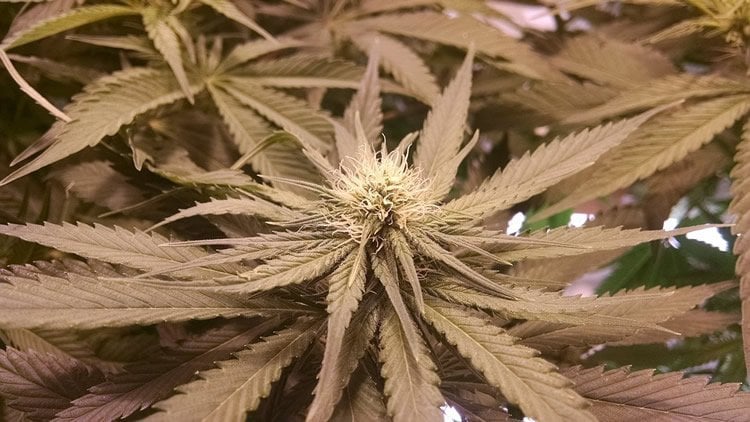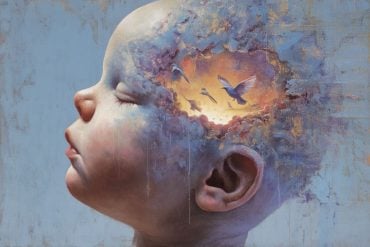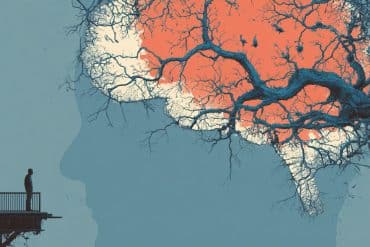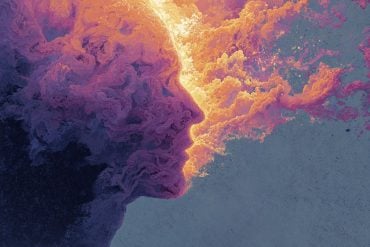Summary: A new study reports a 39 to 46% reduction in seizures in children with Dravet syndrome and Lennox-Gastaut syndrome when given CBD based treatments.
Source: Wiley.
In recent years, cannabinoids–the active chemicals in medical marijuana– have been increasingly touted as a potential treatment for a range of neurological and psychiatric disorders. In a Developmental Medicine & Child Neurology review, investigators compare their efficacy with antiepileptic drugs for children with epilepsy.
One cannabinoid, called cannabidiol (CBD), has the most evidence of antiepileptic efficacy and does not have psychoactive effects. There has been little evidence for its use apart from anecdotal reports, until the last year.
The review notes that in three randomized, placebo-controlled, double-blind trials in Dravet syndrome and Lennox-Gastaut syndrome (two forms of childhood epilepsy), CBD produced a 38 percent to 41 percent median reduction in all seizures compared with 13 percent to 19 percent with placebo. Similarly, CBD resulted in a 39 percent to 46 percent responder rate (50 percent convulsive or drop-seizure reduction) compared with 14 percent to 27 percent with placebo. CBD was well tolerated, however sedation, diarrhoea, and decreased appetite were frequent.

“Community debate about the use of CBD and access to this antiepileptic therapy has been heated,” the authors wrote. “With further trials and greater understanding of its role, the place of CBD in our antiepileptic armamentarium and its impact on comorbidities will become clearer.”
Source: Penny Smith – Wiley
Publisher: Organized by NeuroscienceNews.com.
Image Source: NeuroscienceNews.com image is in the public domain.
Original Research: Open access research for “Efficacy of cannabinoids in paediatric epilepsy” by Shayma Ali, Ingrid E Scheffer, and Lynette G Sadleir in Developmental Medicine & Child Neurology. Published November 6 2018.
doi:10.1111/dmcn.14087
[cbtabs][cbtab title=”MLA”]Wiley”Cannabis Compound CBD Beneficial for Children with Epilepsy.” NeuroscienceNews. NeuroscienceNews, 2 November 2018.
<https://neurosciencenews.com/cbd-childhood-epilepsy-10160/>.[/cbtab][cbtab title=”APA”]Wiley(2018, November 2). Cannabis Compound CBD Beneficial for Children with Epilepsy. NeuroscienceNews. Retrieved November 2, 2018 from https://neurosciencenews.com/cbd-childhood-epilepsy-10160/[/cbtab][cbtab title=”Chicago”]Wiley”Cannabis Compound CBD Beneficial for Children with Epilepsy.” https://neurosciencenews.com/cbd-childhood-epilepsy-10160/ (accessed November 2, 2018).[/cbtab][/cbtabs]
Abstract
Efficacy of cannabinoids in paediatric epilepsy
There are hundreds of compounds found in the marijuana plant, each contributing differently to the antiepileptic and psychiatric effects. Cannabidiol (CBD) has the most evidence of antiepileptic efficacy and does not have the psychoactive effects of ∆9‐tetrahydrocannabinol. CBD does not act via cannabinoid receptors and its antiepileptic mechanism of action is unknown. Despite considerable community interest in the use of CBD for paediatric epilepsy, there has been little evidence for its use apart from anecdotal reports, until the last year. Three randomized, placebo‐controlled, double‐blind trials in Dravet syndrome and Lennox–Gastaut syndrome found that CBD produced a 38% to 41% median reduction in all seizures compared to 13% to 19% on placebo. Similarly, CBD resulted in a 39% to 46% responder rate (50% convulsive or drop‐seizure reduction) compared to 14% to 27% on placebo. CBD was well tolerated; however, sedation, diarrhoea, and decreased appetite were frequent. CBD shows similar efficacy to established antiepileptic drugs.






